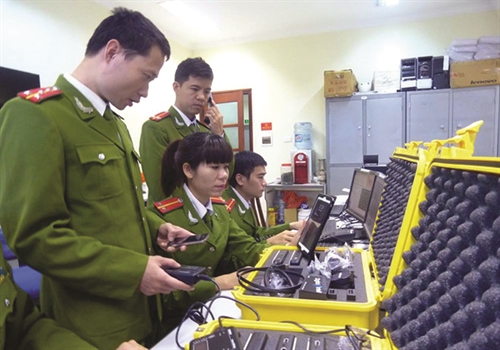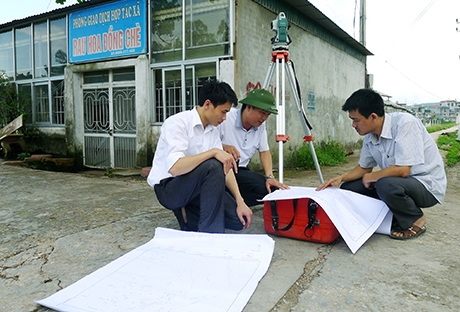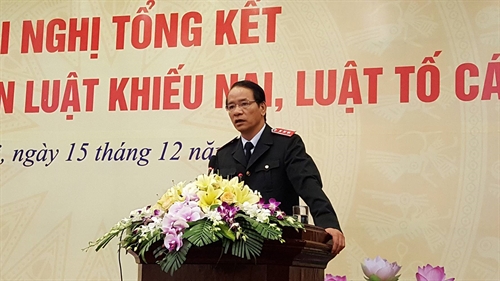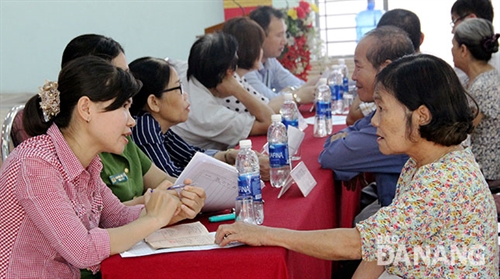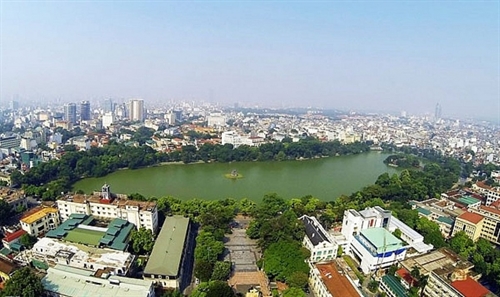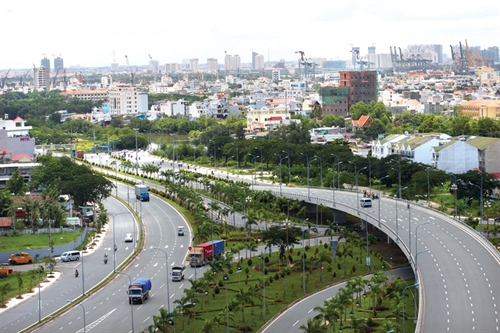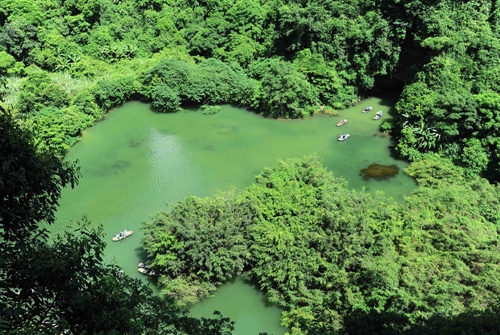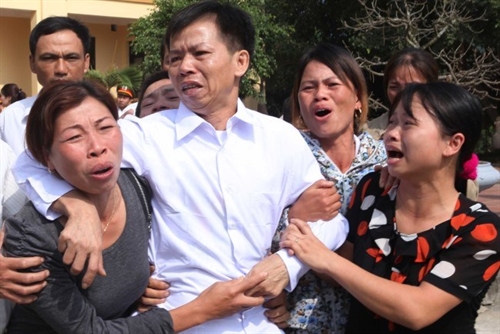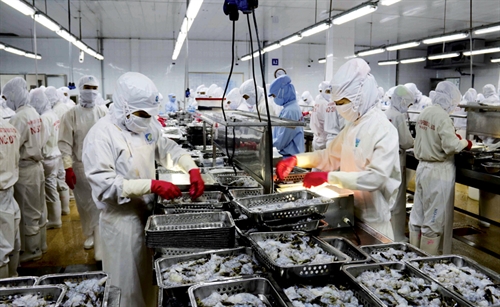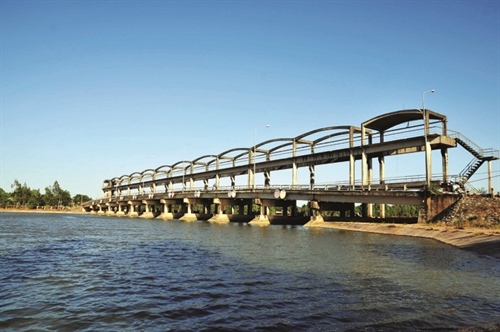The Law on National Defense (the Law) was passed in June this year to institutionalize new guidelines and viewpoints of the Party and the 2013 Constitution on national defense and building of armed forces of Vietnam.
With effect from January 1 next year, the Law will replace its predecessor enacted in 2005.
The people’s armed forces
Under the Law, the people’s armed forces of Vietnam are composed of the People’s Army, the People’s Public Security, and the Militia and Self-Defense force. Their operation must comply with the Constitution and laws of Vietnam as well as with treaties to which Vietnam is a contracting party. The people’s armed forces are placed under the leadership of the Communist Party of Vietnam, the supreme command of the President and the unified management of the Government.
Compared to the current Law, the Law contains new provisions to reduce overlapping tasks of the People’s Army, the People’s Public Security and the Militia and Self-Defense force. Accordingly, the people’s armed forces may be mobilized in the following six cases:
(i) In a state of war or state of defense emergency. In this case, the armed forces must abide by orders of the President and relevant laws;
(ii) Executing martial law or curfew orders in accordance with this Law and other relevant laws;
(iii) In a state of emergency due to disasters, dangerous epidemics or circumstances detrimental to national security and social order and safety in accordance with the law on states of emergency and other relevant laws;
(iv) When emerges a threat to national security and social order and safety which, however, is not serious to an extent that requires declaration of a state of emergency as provided by the law on national security and other relevant laws;
(v) When participating in the protection of peace in the region and the world under decisions of the Defense and Security Council; and
(vi) When occurs a complicated situation related to national security or social order and safety, combat of crime, or prevention, control and remediation of incidents, natural disasters or epidemics as required by the Government.
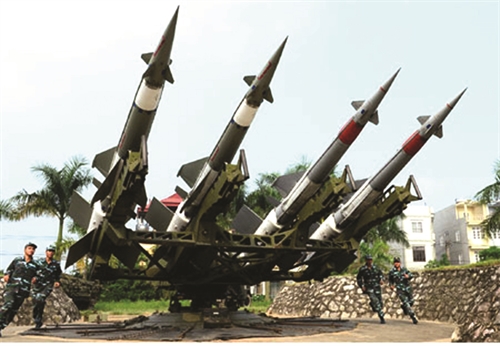 |
| A drill of Battalion 77, Brigade 257, Division 361 of the Air Defense and Air Force Service__Photo: Internet |
Basic national defense activities
The Law states that national defense activities must comply with the Constitution and laws, and be placed under the absolute, direct and all-sided leadership of the Communist Party of Vietnam and the centralized and unified management of the State.
The building of the entire-people national defense is addressed in Article 7 of the Law. Compared to the 2005 Law, this activity has several new contents such as making and implementing plans and measures on information warfare and cyberspace warfare; combining national defense with socio-economic development; and combining national defense with security and diplomacy. The Law stipulates that the State will work out plans and programs on combination of national defense with socio-economic development in conformity with the socio-economic development strategy and national defense strategy in each period. A number of construction projects in key defense areas must be of dual use, ready to serve national defense tasks.
Regarding defense diplomacy, the Law says that it will be carried out in line with the foreign policy of the Party and the State, aiming to promote the aggregate strength of the country for national construction and defense and contribute to the cause of peace, national independence, democracy and social progress in the world. Vietnam will continue to establish and develop defense ties with foreign states and international organizations. Defense diplomacy tasks include establishing and expanding relations of friendship and international cooperation; holding defense dialogues; building and consolidating mutual confidence, understanding and trust and solidarity between the Vietnam People’s Army and armies of other countries. Vietnam will participate in creating and enforcing mechanisms of bilateral, multilateral, regional, inter-regional and global defense cooperation for the goal of peace, stability and development.
Noteworthy, the Law lists up measures to be taken during periods of martial law and curfew in conformity with the 2013 Constitution. These measures somehow limit human rights and citizens’ rights.
According to Article 21 of the Law, during the time of martial law, special measures may be enforced, such as banning or restricting movement of people and vehicles; suspending or restricting activities at public places; banning demonstrations, workers’ strikes, vendors’ and students’ strikes and mass rallies; arresting individuals and organizations that carry out activities infringing upon national defense and security or forcing them to leave or stay at their places of residence or certain areas. Others include mobilizing people and vehicles of agencies, organizations and individuals; performing special management of weapons, explosives, supporting tools, flammables, toxins and radioactive substances; strictly controlling information technology infrastructure facilities, information devices, press and publication activities.
The commanders of the army units assigned to manage the area placed under martial law may order the application of the above said measures.
According to Article 22 of the Law, many measures can be applied during a curfew. These include banning mass rallies; prohibiting movement and activities of people and vehicles during certain hours and in certain areas; suspending or restricting activities at public places; and placing guard and control stations to check luggage, vehicles and documents of people passing by.
To protect national defense, the following acts are also prohibited:
- Opposing the independence, sovereignty, unity and territorial integrity of the Fatherland, the people, the Party, the State, the socialist regime and the cause of national construction and defense.
- Founding, joining or financing unlawful armed organizations.
- Mobilizing and employing people, weapons, explosives, supporting tools, facilities, equipment and vehicles for carrying out armed activities without orders or decisions of competent authorities or not included in approved training, exercise or combat readiness plans.
- Opposing or obstructing the performance of national defense tasks.
- Taking advantage of or abusing the performance of national defense tasks to infringe upon national interests and lawful rights and interests of agencies, organizations and individuals.
- Committing gender discrimination in the performance of national defense tasks.- (VLLF)
